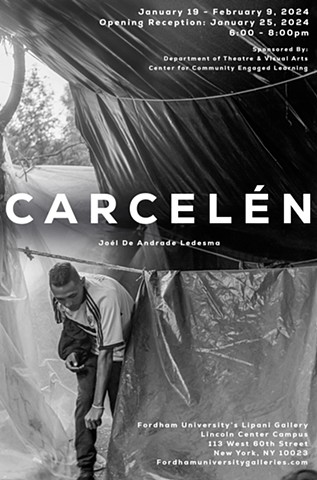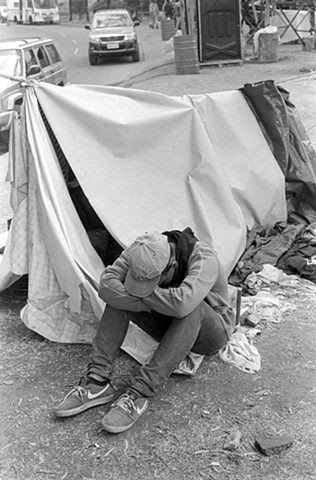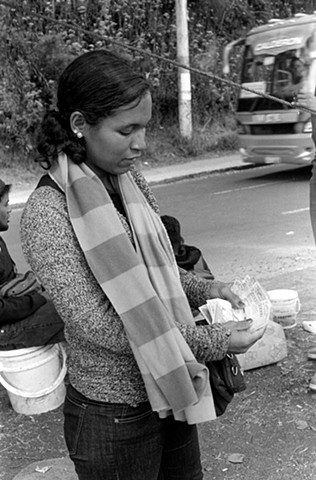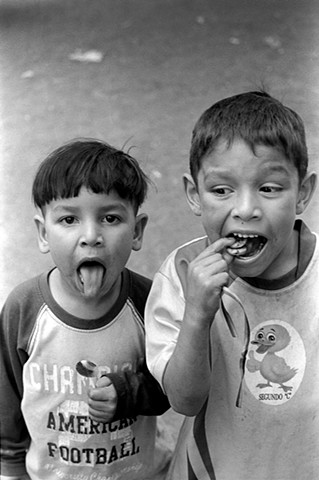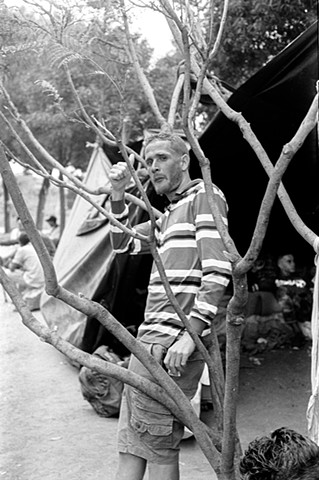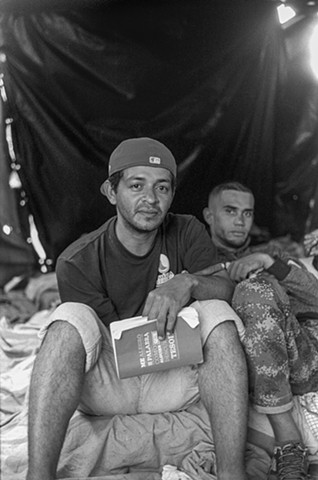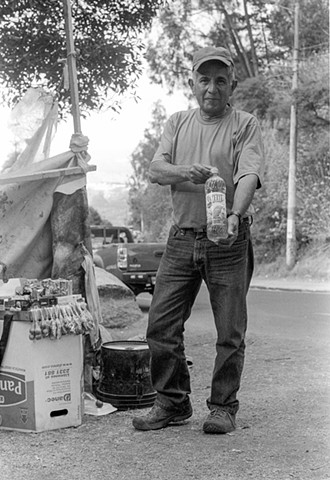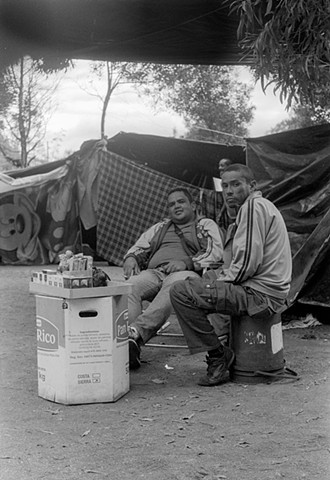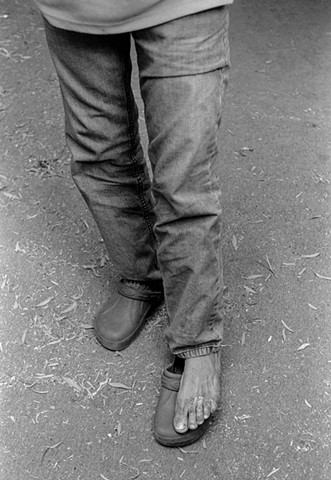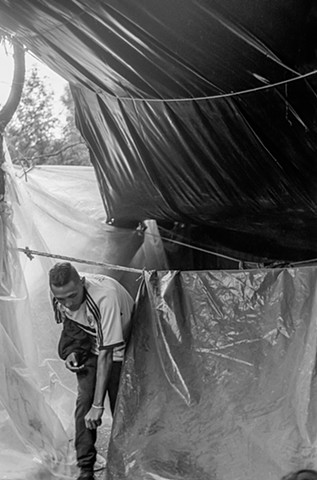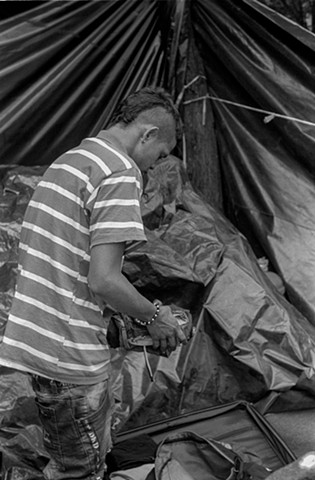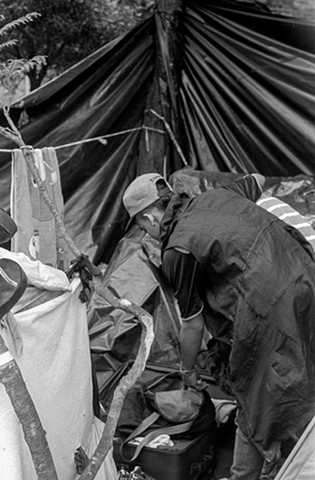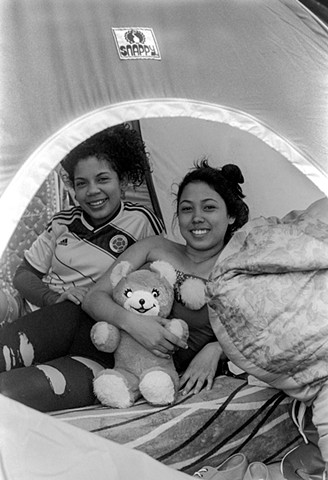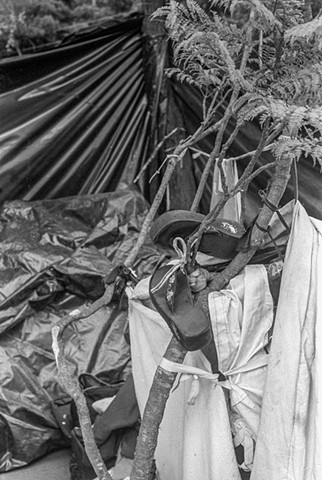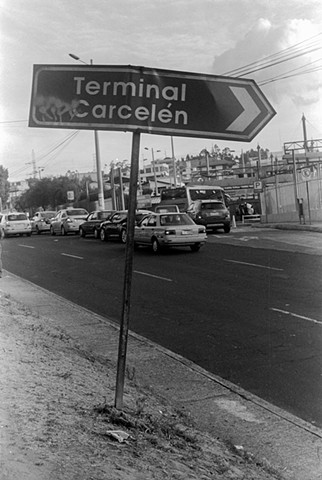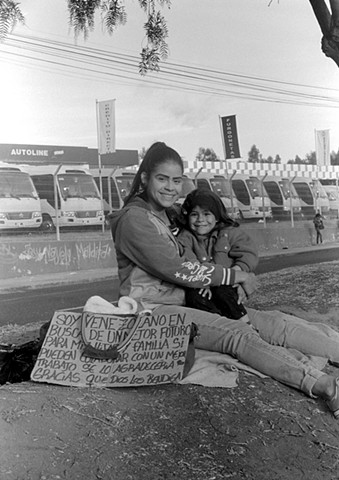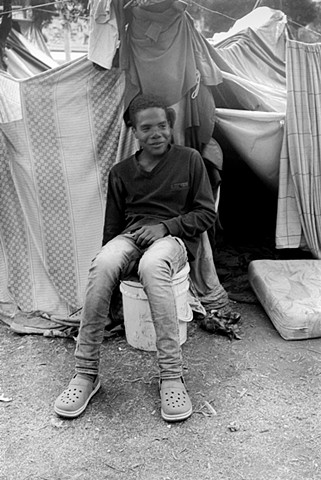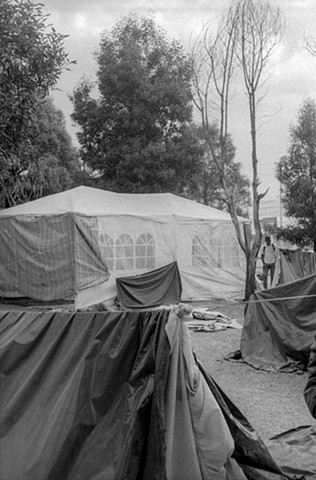Joél De Andrade Ledesma: Carcelén
Exhibition Description:
The photographs in Carcelén were taken in 2018 in Quito, Ecuador at a makeshift refugee camp created and inhabited by Venezuelan migrants. This photographic project represents an investigation into the humanity of people, the reality of migration, and the vitality of those who choose to leave their homelands.
Many of the migrants pictured in this project had left home on foot as part of a wave of millions of Venezuelans who left the country in the 2010’s due to political and economic instability. In Ecuador, like other receiving countries, many of the Venezuelans encountered the challenges of xenophobia, accessing basic needs, and attacks by conservative and even fascist elements in society. Joél came in contact with the people of the camps, supporting a mutual aid network that was aware of the plight of these Venezuelans, including attempts by state and local actors to displace them from their camp. In the time spent with the community, Joél exchanged similar and divergent stories of homeland, diaspora, and the reality of migration today.
Carcelén consists of eighteen 13 x 19 prints, matted and framed. The photographs were created from black and white 35 mm film negatives shot on a Pentax K1000, developed in the dark room, and then scanned and digitally printed.
Artist Biography:
Joél Alexander De Andrade Ledesma (b. 1989) is a cultural worker, educator, and community organizer. Born in Caracas, Venezuela in the midst of the Caracazo insurrection, Joél and his family migrated to the United States in the wake of this historical and violent event. Having lived as an undocumented immigrant for almost two decades, Joél now focuses his creative, political, and academic projects on making sense of the structural and institutional violence marginalized communities move through. From this perspective, Joél elaborates the ways communities exercise reciprocity, resistance, and resilience. Joél is interested in visual storytelling that demonstrates these qualities and the way people and communities assume the responsibility and reality of freedom, solidarity, and survival.
